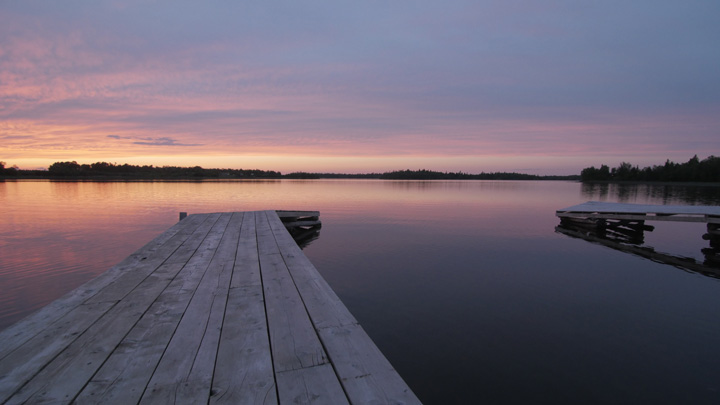An isolated reserve under one of Canada’s longest boil-water advisories is one step closer to being connected with the outside world.

The Manitoba government introduced a bill Wednesday that would give the province legal authority to help fund construction of a permanent road for Shoal Lake 40 First Nation.
The reserve — on the Ontario-Manitoba boundary — was cut off from the mainland a century ago during construction of an aqueduct which sends fresh water to Winnipeg. It has no all-weather road and has been under a boil-water advisory for 18 years.
RELATED: Shoal Lake 40 First Nation in Manitoba to take case to UN
“It’s something that cannot be overlooked any longer,” said Aboriginal Affairs Minister Eric Robinson, who introduced the bill. “The challenges faced by Shoal Lake 40 in terms of clean drinking water, the cost of living and all these other factors have to be considered.”
In the summer, people of Shoal Lake 40 depend on an aging ferry to get to the mainland, but the vessel failed government inspection this year. They use a treacherous ice road in the winter and people have died falling through the ice.

Get weekly health news
WATCH: 16×9’s “As Long as the Waters Flow” featuring Shoal Lake 40
Health-care workers and ambulances won’t risk going to the community and children have to leave the reserve to continue their education past Grade 8.
The road is an important step toward reconciliation with First Nations, Robinson said.
Chief Erwin Redsky said his community is “very, very excited” about the prospect of finally having a permanent lifeline. The road would mean his reserve could start thinking about a water treatment plant and economic development, he said.
Elders would be able stay in the community because they would have access to health care and children could stay at home while attending high school, Redsky said.
“The road is so critical in all that. We can start catching up to the rest of society.”
Robinson said Manitoba is prepared to kick in $10 million for the road’s construction, which he said would probably take two years to complete. Both the city of Winnipeg and Prime Minister Justin Trudeau have promised to match that contribution.
The reserve has lobbied for what residents call “Freedom Road” for years and pressure has been growing from business leaders, politicians, artists and activists.
While a design study was paid for by all three levels of government, the former federal Conservatives steadfastly refused to commit to fund construction of the road.
New Indigenous Affairs Minister Carolyn Bennett was unavailable for an interview. But a spokesperson for Indigenous and Northern Affairs Canada said the Liberal government intends to move ahead with Freedom Road.
“We recognize the very difficult situation faced by the community of Shoal Lake 40,” Michelle Perron said in an emailed statement. “First Nations should expect, as do all Canadians, access to safe, clean and reliable drinking water.”
Ernie Gilroy, CEO of Manitoba’s East Side Road Authority which would be partially responsible for the road’s construction, said things are moving ahead quickly. The authority has already hammered out an agreement with the reserve to ensure qualified local residents would be employed in the road’s construction.
“If all of the players come together and work together, they can be under construction this year,” Gilroy said. “This will really make a big difference to a lot of people.
“We think it’s the right thing to do.”







Comments